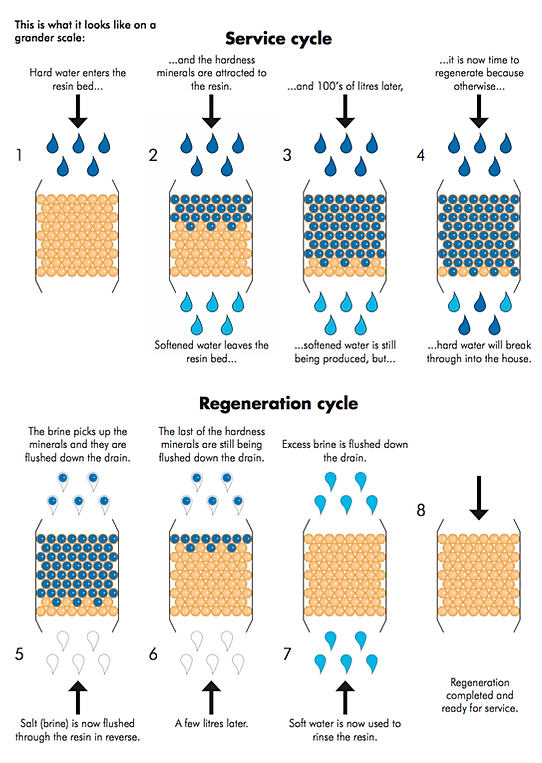2. What is Softened Water?
How Do You Soften Water?
There is only one way to soften water, and that through an ion exchange process to remove calcium and magnesium from hard water, swapping them for tiny amounts of sodium (not table salt!).
The result?
Beautifully softened water that prevents scale build-up, helps appliances last longer, makes cleaning easier — and tastes refreshingly smooth to drink.
Anything and everything else you see advertised - magnets, conditioners, miracle gadgets - are just marketing hype. (And believe me, there's plenty of hype in this industry - much of it complete rubbish!)
So, How Does a Water Softener Actually Work?
Water softeners use ion exchange resin to remove calcium and magnesium from hard water, swapping them for tiny amounts of sodium.
If you have a water softener installed at home, here’s what’s happening behind the scenes:
-
Hard water flows through the softener’s resin bed.
-
The resin captures the hardness minerals (the “chalk”).
-
When the resin gets full, the softener cleans itself through a process called 'Regeneration'.
-
During regeneration, the softener flushes the captured chalk down the drain using a brine (salt water) solution.
-
After that, fresh water washes out any salty residue — leaving you with pure, refreshing softened water that is safe to drink and ready for everyday use.
Many of our customers describe softened water as slightly sweeter and incredibly refreshing — and once you’ve tried it, it’s hard to go back!






